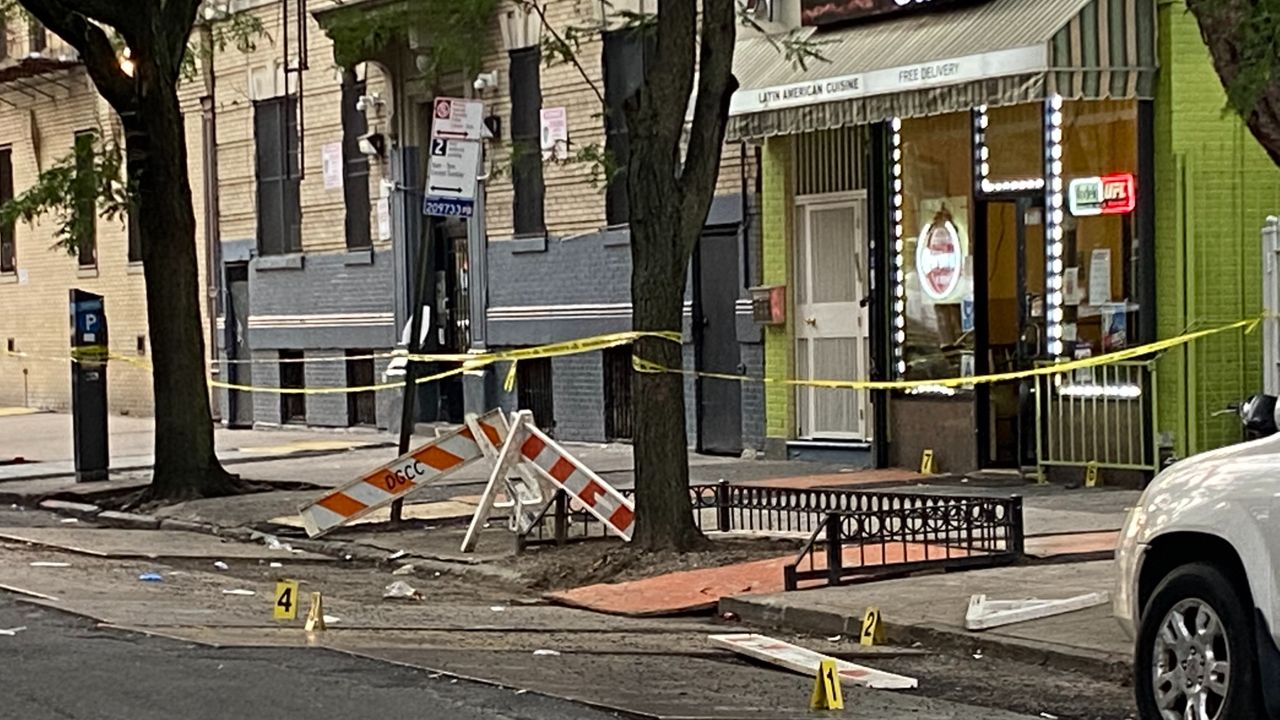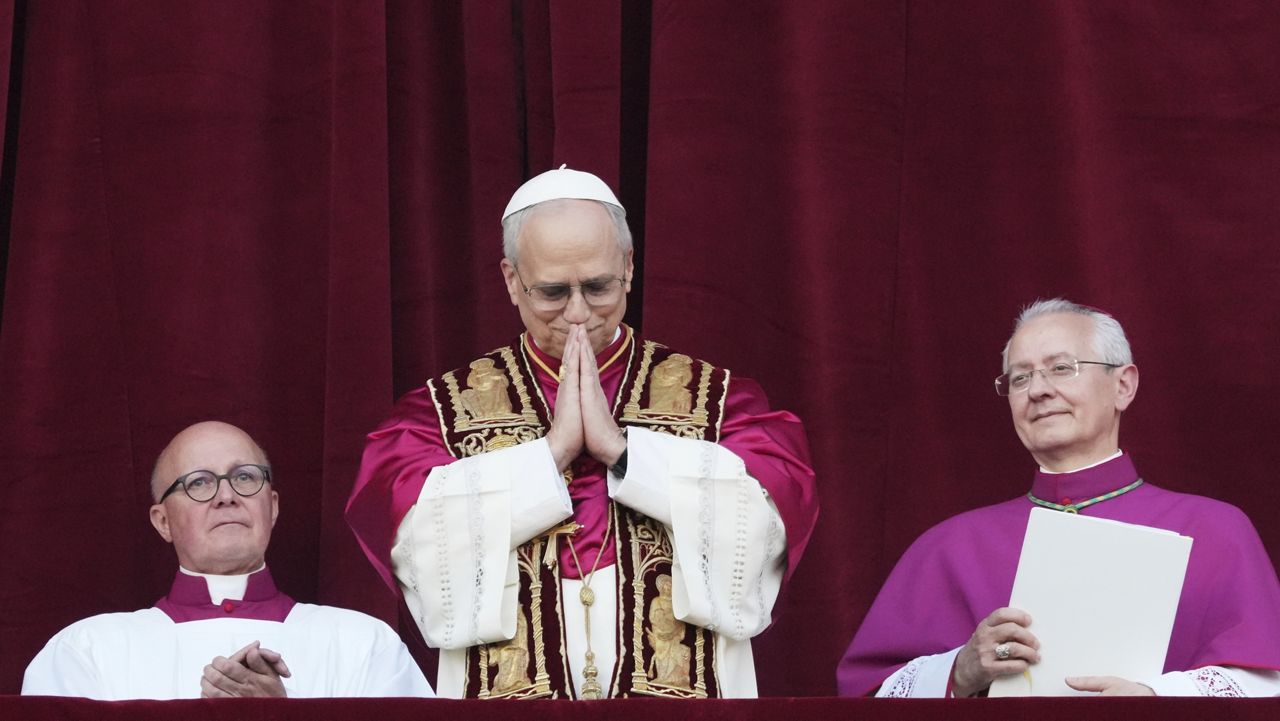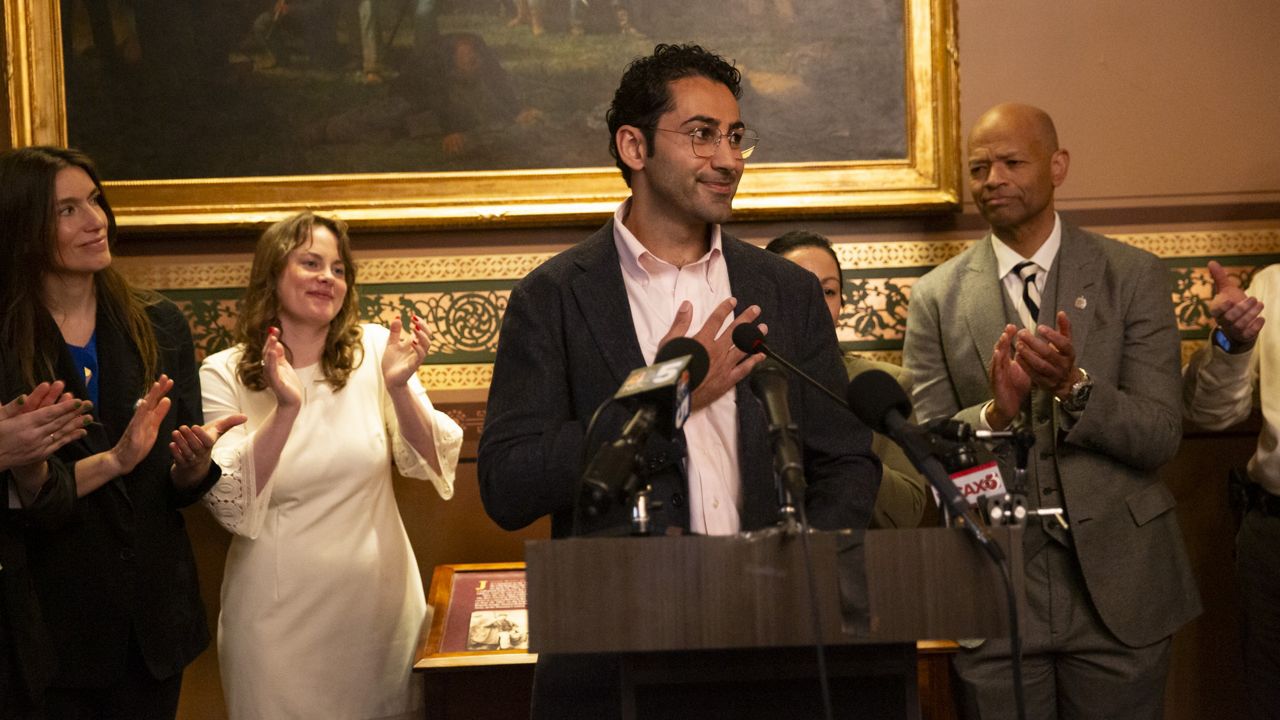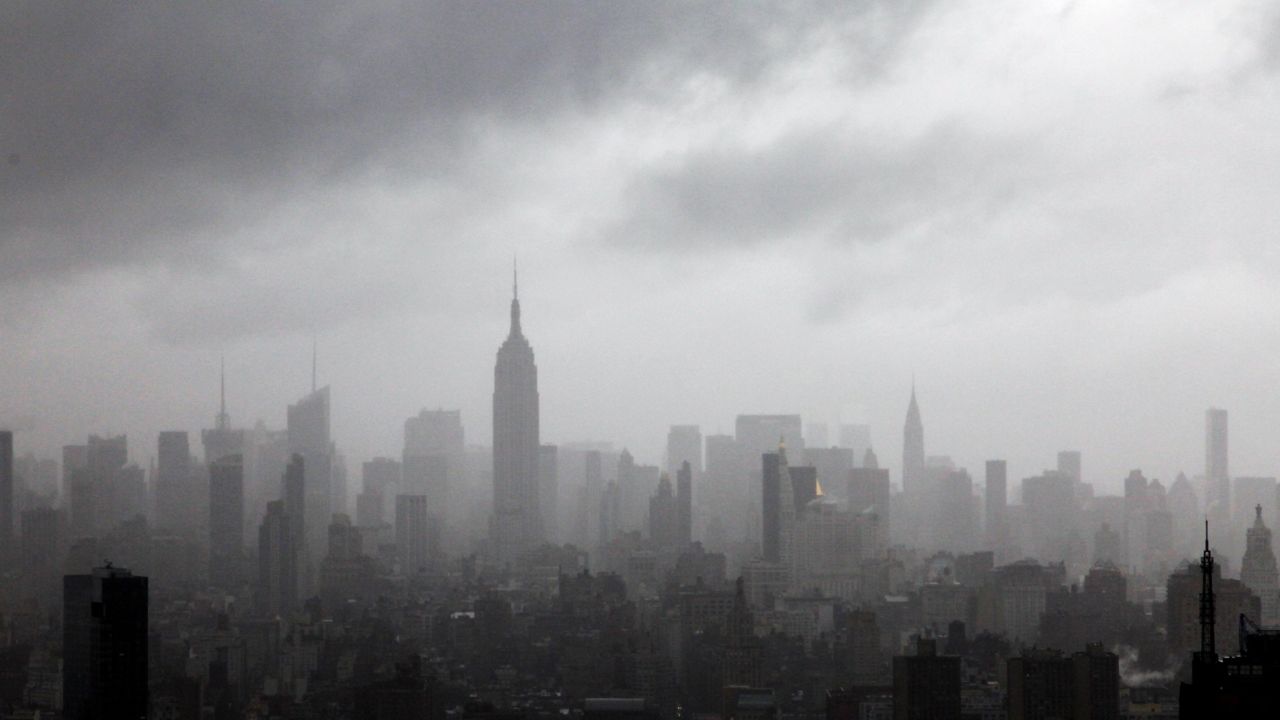A 19-year-old aspiring rapper. A 13-year-old contemplating leaving gang life. A 16-year-old who survived a shooting a year ago.
All three were shot and killed in the space of a few days in the Bronx, in a surge in shootings that police have said is tied to a possible gang war.
The suspected targeted killings have also been accompanied by unrelated shootings. On Monday night, a teenager was shot in the torso. Early Wednesday police found a motorist with multiple gunshots to the head in an alleged carjacking.
Across New York City, shootings are up nearly 29% compared to the same time last year, according to police statistics. In the Bronx, however, shootings are up by nearly three-fourths, with 269 incidents this year so far.
“The Bronx is back to a level not seen since 1996,” NYPD Commissioner Dermot Shea told NY1 Tuesday.
Shea has tied the rise in shootings to bail reform laws that went into effect last year that limit pretrial detention for nonviolent offenses, allowing alleged offenders to stay out of Rikers Island ahead of their trials, as well as to a backlog in the city’s court system.
But criminal justice experts say that the bail reform rules do not apply to gun-related offenses, and gun violence interrupters in the Bronx say the roots of the violence can be found in the decline in services, employment, food and education caused by the pandemic.
“These kids, they want shelter, they want safety, they want nourishment,” said David Caba, the program director for Good Shepherd Services’ Bronx Rises Against Gun Violence program. “When you remove services in our neighborhoods that are already suffering, like employment and housing, they're gonna find it somewhere.”
Yet Caba, a lifelong Bronx resident, agrees with Shea that shootings in the borough are as bad as they were a quarter-century ago.
“He's not wrong,” Caba said.
According to statistics provided by the NYPD, the citywide violence is impacting young people more than last year.
Year to date, 43 suspects in shootings in 2021 are under 18, compared with 28 last year. There are more victims under 18 so far this year as well, 79 victims compared with 50 for the same period in 2020.
The spike in shootings citywide prompted Gov. Andrew Cuomo last week to declare a 30-day state of emergency on gun violence in the city, which includes $138 million in spending and signing a new state law that lets the government sue out-of-state gun manufacturers over weapons that end up in the city.
Shea told NY1 Tuesday that bail reform laws, as well as a 2017 law that raised the age at which teenagers can be tried as adults from 16 to 18 years old, have led to children with violent records being repeatedly released despite significant charges.
“You have a 16-year-old kid arrested three times in 90 days with guns. Where is the outrage and where are the hearings to say, what's going on?” Shea said. “Why would this kid be put back onto the street over and over without meaningful help?”
Krystal Rodriguez, the associate director of jail reform at the Center for Court Innovation, questioned why the Raise the Age legislation from four years ago would only be producing a spike in teen-related violence now.
Bail reform is also not to blame, she said. Nearly every gun-related offense in the state’s penal code — especially the most commonly charged gun offenses in the city — is in fact eligible for bail and remanding to jail, she said. Indeed, she added, city jails now have 2,000 more people than they had at the onset of the pandemic, suggesting that judges are continuing to remand alleged offenders for serious charges.
“Whatever the impetus for placing the blame on bail reform, I think we're missing the mark in not focusing on community-driven, ground-up violence prevention that could get us where we want to go,” Rodriguez said.
New York Attorney General Letitia James has pointed to gun trafficking operations into the city as being to blame for the rise in shootings.
Mayor Bill de Blasio has embraced a proposal from President Joe Biden to create a task force specifically aimed at stopping gun violence, including deepening an ongoing joint effort from local police and federal law enforcement agencies, like the Bureau of Alcohol, Tobacco and Firearms, to prevent trafficking.
“We need as much federal help as possible outside the bounds of New York City to stop the flow of guns into New York City,” de Blasio said Tuesday.
Caba said he is frustrated with those who finger bail reform as a cause for the shootings, since city jails have long been a place where young people become further exposed to and enmeshed in criminal activity.
“You wanna attack criminal justice reform?” he said. “How about we attack the guns coming into our city.”
The near-term causes of the gang war in the Bronx likely trace to social media, said James Reddick, the program manager for S.O.S. Bronx, a violence interruption project.
During the pandemic, he said, teens without much else to do sometimes took to social media to insult people in rival gangs or social groups.
“Now that we're outside, people are seeing those other people, and those issues are sparking up,” Reddick said.
But Reddick added that he does not blame teenagers for the violence, since many of them have seen significant personal and communal hardship through the pandemic. His and others’ violence interruption work is only part of the solution, he said.
“I feel optimistic that we can provide those services and we can help some young people change their lives,” he said. “But what most people don't understand is that you can't help a young person without helping their family.”







_PKG_Mn_Ban_E-Bikes_Rally_CLEAN)
